Raspberry Pi Synthesizers – How the Pi is transforming synths
The readymade pocket computer is replacing custom DSP.
The Raspberry Pi microcomputer is finding its way into more and more synthesizers. Do your synths have a slice of it inside? Read on to find out.
Raspberry Pi
Digital synthesizers are essentially computers in specialized housings. Rather than a keyboard with letters and numbers, their keyboards trigger notes. Custom-designed DSP (digital signal processing) systems can be expensive so some manufacturers are turning to ready-made computing systems to run their synths. One that’s been gaining in popularity in recent years is Raspberry Pi. The low-cost mini computer is now in instruments by Korg, Erica Synths and many more.
Is this cheating? Do any of your synths have Pi inside? Let’s find out.
DSP In Synthesizers
Digital synthesizers have existed in some form since the 1970s, with the New England Digital Synclavier being the first commercial release in 1977. As synthesizers became more powerful, adding sampling and physical modelling to the already existing FM synthesis, the DSP required to run them became more complex. Additions like sequencers and effects only compounded the expense.
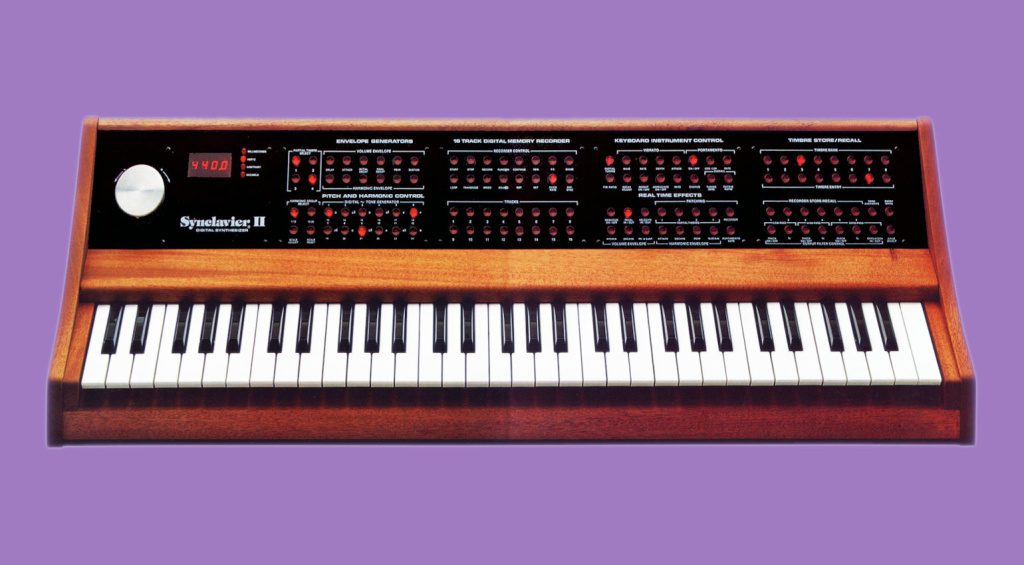
To run their DSP, manufacturers created custom DSP systems running on off-the-shelf chips from companies like Motorola and Texas Instruments. One example was Korg’s Pentium-based OASYS workstation from 2005. While incredibly powerful, it was also incredibly expensive.
How to keep the power while also lowering the cost?
Raspberry Pi: What Is It?
The solution for Korg – as well as other manufacturers, as we’ll see – was the Raspberry Pi. Essentially a complete computer processor in a small and – critically – inexpensive package, this programmable hardware get used for all sorts of applications. From robotics to home computing to (you guessed it) digital synthesizers, ready-made Raspberry Pis offer an elegant and affordable solution for custom computing systems.
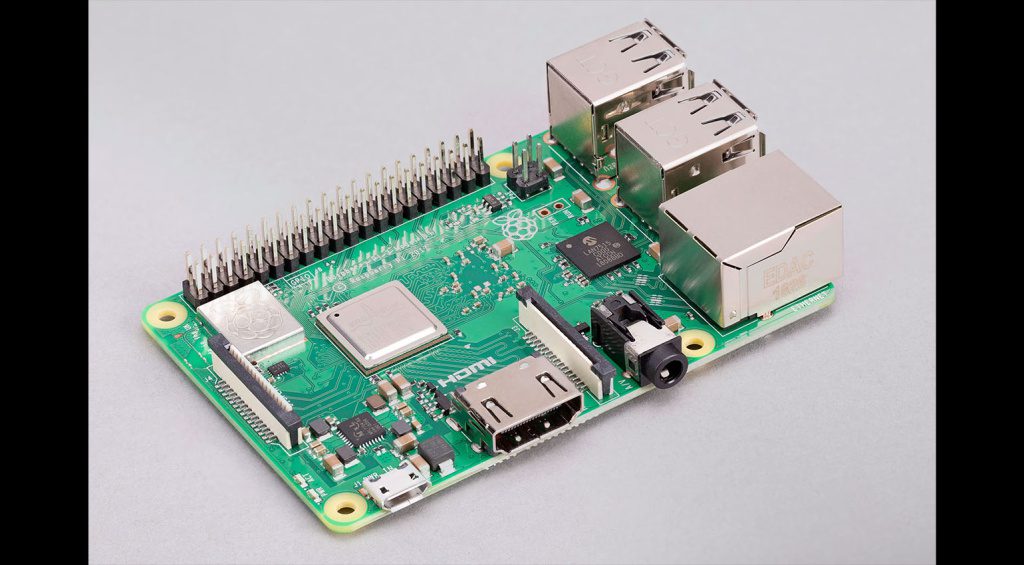
Korg Serves Up Some Pi
The biggest synthesizer manufacturer to make use of the Raspberry Pi is Korg. The Japanese synth company’s Wavestate, Modwave and Opsix digital synths all make use of the Raspberry Pi Compute Module. (They’re in the module versions too.)
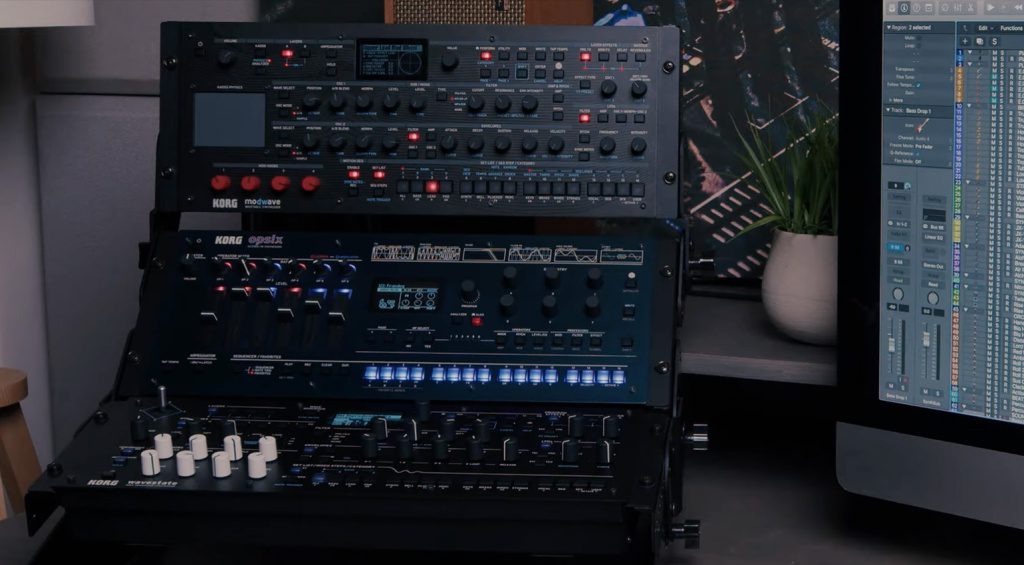
In an article on the Raspberry Pi home page, Korg’s Andy Leary sites price and manufacturing scale as the main reason Korg decided on these components. He also liked that it was ready to go as is, providing CPU, RAM and storage in a single package. “That part of the work is already done,” he said in the article. “It’s like any other component; we don’t have to lay out the board, build it and test it.”
The software for each instrument is, of course, custom. The Raspberry Pi, however, generates the sound. “Not everyone understands that Raspberry Pi is actually making the sound,” said Korg’s Dan Philips in the same piece. “We use the CM3 because it’s very powerful, which makes it possible to create deep, compelling instruments.”

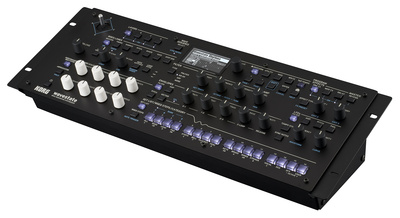

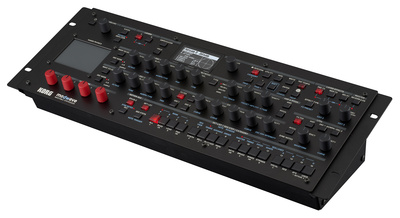

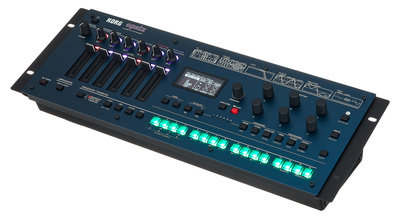
Erica Synths Also Likes Pi
You might not expect to find a Raspberry Pi inside an analogue synthesizer but if that synth happens to have digital functionality… Take the Bullfrog, for example. Erica Synths and Richie Hawtin’s educational desktop analogue has a RP2040 to handle MIDI implementation as well as functionality for the Sampler/Looper voice card. This adds additional functionality to the largely analogue synthesizer.
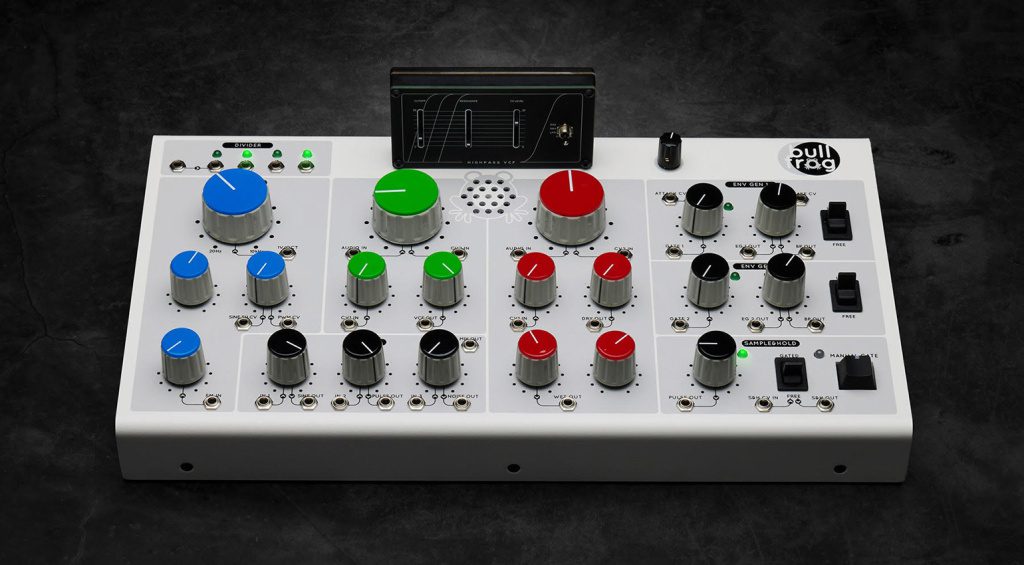

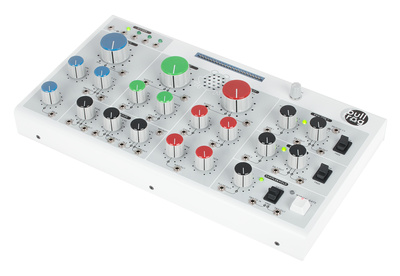
Zynthian: Pi For Everyone
One of the benefits of using Raspberry Pi is the ability to make it open source. The DIY kit Zynthian is an open synth platform with a Raspberry Pi 4 at its centre. The desktop box can function as a keyboard expander, effects unit, MIDI processor, groovebox or even micro-DAW. “Zynthian is a community-driven project and it’s 100% open source,” the company says on its site. “Free software on Open hardware. Completely configurable and fully hackable!”
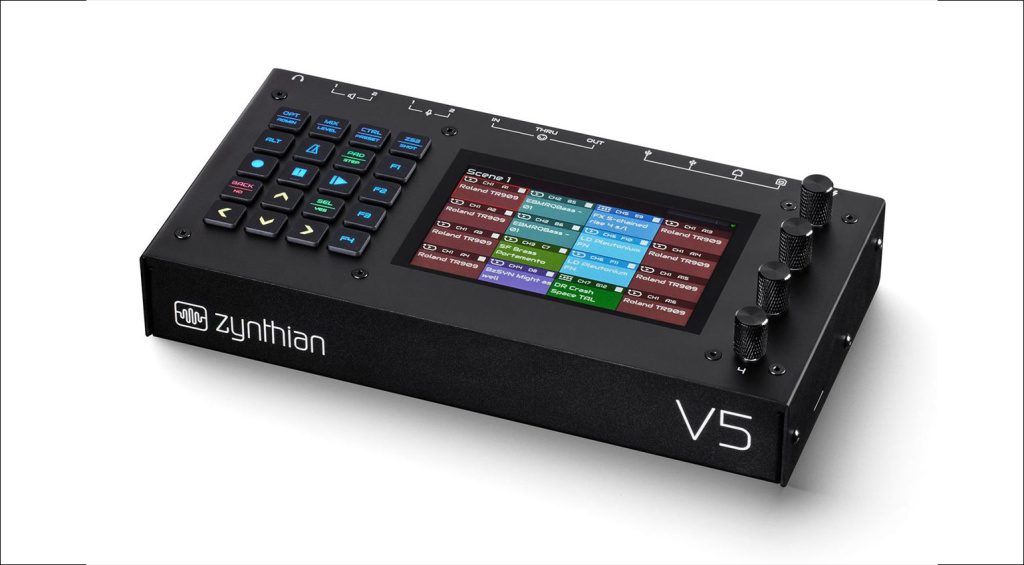
Damn Fine Pi
There are plenty more synths making use of the Raspberry Pi. One that you may not realize is Organelle M by Critter and Guitari. By putting a Pi inside, they’re able to run Pure Data, meaning that you can program your own synths to use inside too.
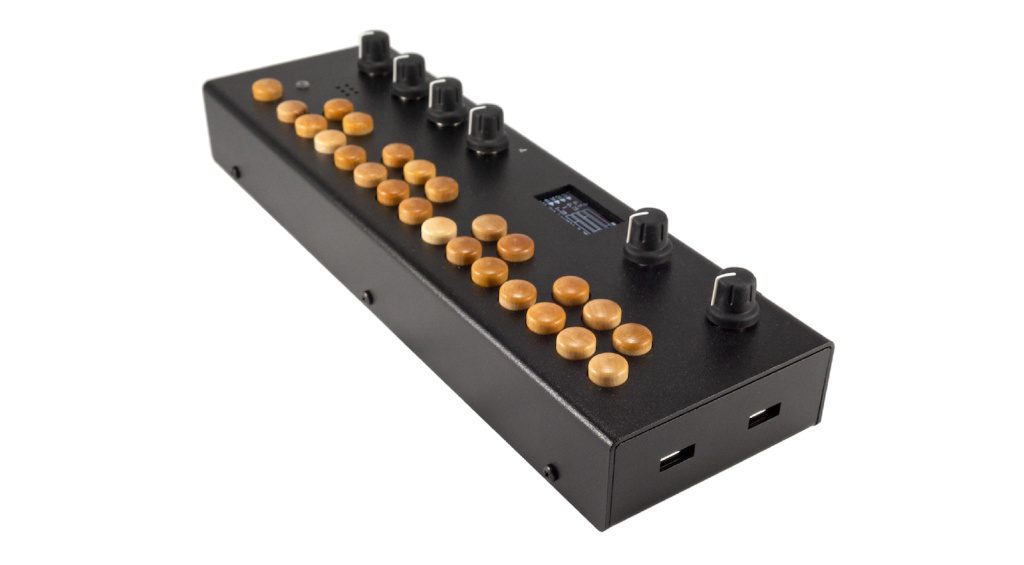
Another fun instrument with a Raspberry Pi 3 for a soul is Tasty Chips’ GR-1 Granular synthesizer.
For something a little more esoteric, try the Yoshimi Pi. “Yoshimi Pi is the hardware incarnation of the software synth Yoshimi, running on a Raspberry Pi 4 in a rugged metal case with a built-in PSU and line level audio output,” according to the product page.
Of course, you don’t have to buy a commercial Raspberry Pi-based synthesizer. There are plenty of DIY options to run them “bare metal,” that is, without a separate operating system. Just hook up a MIDI controller to the board and you’re off and running. Try MiniSynth Pi or code your own!

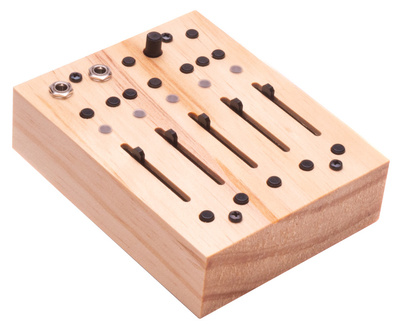

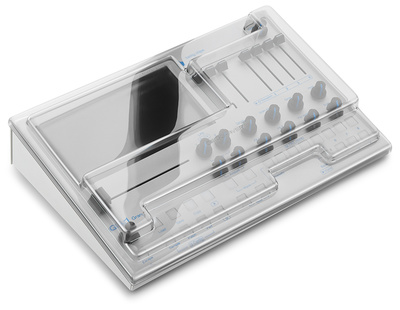
Raspberry Pi: Is It Cheating?
In the same way that some claim that virtual analogue is just a “VST in a box,” others complain that synths with Raspberry Pi at the core are somehow cheating. You may as well just make your own, right?
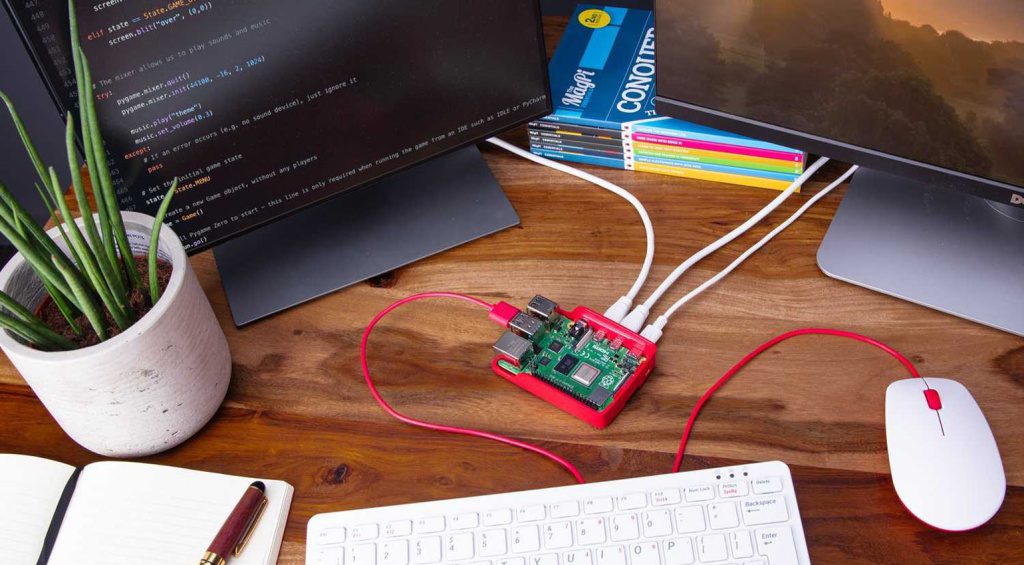
“Just because something is based on a Raspberry Pi it doesn’t mean it’s trivial to make one,” said chalk_walk in a Reddit thread on the Organelle. “If they provide the software then you may be able to put together something equivalent, but if not: you are out of luck if you want an Organelle. Similarly, part of the complexity is in making an enclosure with appropriate controls and displays.”
As we’ve seen, all digital synthesizers have some kind of computer inside. Whether that’s a custom DSP with off-the-shelf chips or a Raspberry Pi, you still have to code the software, design the enclosure and PCBs and everything else that goes along with it. By going with a little computer like this, you can shave some money off the asking price and save on development time too.
More Information
- Raspberry Pi’s home page
- Korg’s home page
- Erica Synths’ home page
- Zynthian’s home page
- All about synthesizers
14 responses to “Raspberry Pi Synthesizers – How the Pi is transforming synths”

 4,6 / 5,0 |
4,6 / 5,0 | 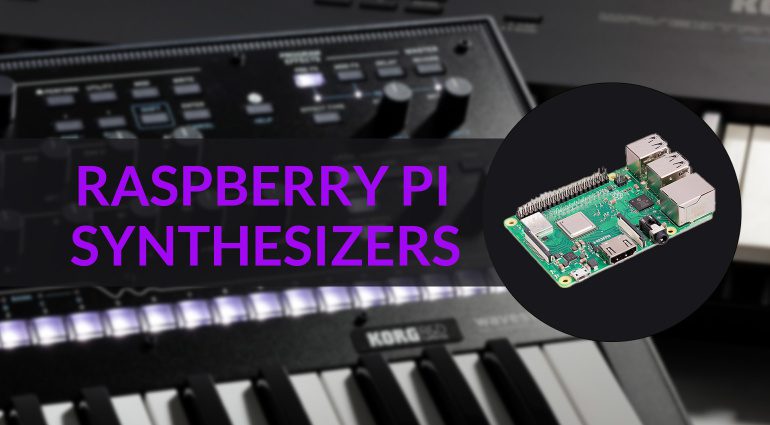


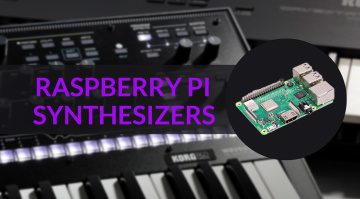

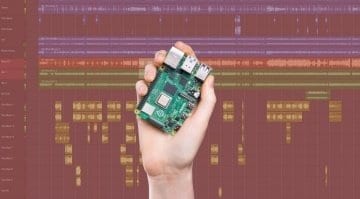
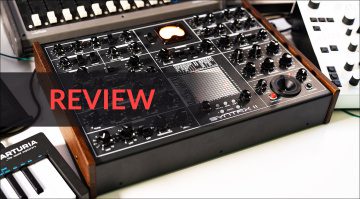

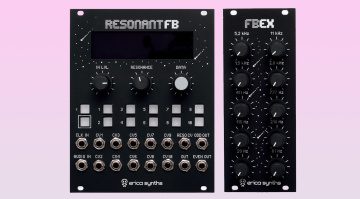
I could be wrong, but I don’t think any of these synths use the type of RasbPi shown in this article.
Rather, they’re using one of the microcontroller versions, which fundamentally isn’t much different than digital synths running on ESP32 or Teensy, it just has more power.
As such, they’re still way closer to bare metal than a device running linux on what is essentially a full computer.
You are mostly wrong. The Korg synths that lead off the article use the Compute Module 3, which is equivalent to the Pi 3 pictured at the top of the article—just on a smaller PCB without all the ports soldered on.
That allows the Korg synths to run Linux (I assume) and basically the same code as the desktop VST versions of the synths.
While most of the synths in this article don’t use the exact form factor pictured, I think the Tasty Chips GR-1 does. If you look at the ports on the back, it has a cluster of Ethernet and 4x USB in the same arrangement as an off-the-shelf Pi 3/3+, so I think they built around that instead of the OEM-focused Compute Module form factor.
The article does mention that the Bullfrog uses a Pi RP2040, which is similar to an ESP32 or Teensy, so that one sticks out compared with the others. You’re right that the RP2040 doesn’t have the same power as the Pis that the others use – it doesn’t run a desktop OS.
The other synths in this article are essentially full computers!
I’d be shocked if they were running even the lightest Linux distro; if they’re on CM3 I’d wager there’s a very lightweight custom OS there.
Some could potentially use a really lightweight Linux. But as far as I know, most of them use some kind of firmware that is loaded from SD and ultimately represents the synthesizer software. The Pi Foundation provides software libraries with which you can easily access and use the hardware. These libraries can be used to program synthesizers that avoid the burden and loading times of an OS like Linux. Ultimately, the Raspberry Pi is operated like a (very large) microcontroller.
Great article. I’ve had a Zynthian for a couple of years, and it does a lot more, for instance Pure Data, Set B Free, Aeolus, and more. The guts are a full RPi, a sound card hat, and custom built MIDI and audio IOs. Haven’t got version 5 yet, but it’s even more advanced…
This is an interesting article and a good intro to the Pi being used in synths!
I knew the Korg trio ran on the CM3 and obviously the Monome Norns is built around a Pi, but I was unaware of the GR-1 or Organelle M using these single-board computers at their core.
I do think the Erica Synths Bullfrog doesn’t really fit in this article—the Pi RP2040 has almost nothing in common with a full Pi like the others use. It’s made by the Pi foundation, yes, but it’s more a microcontroller like an Arduino than it is a computer. And obviously, the Bullfrog uses it very differently than the others, which synthesize their sounds on a full Pi.
I’m surprised that you didn’t mention the MiniDexed, a Pi based emulation of the Yamaha TX816.
And contrary to what Nathan said, some of them (like Zynthian) *do* use the mainline Pi hardware.
A little off.
My Zynthian runs on a Raspberry Pi 400, has an HDMI USB 7″ LCD panel and a Behringer 404HD sound card. Yes, it’s not an official project kit, but the Zynthian project has a hardware part (for which you need a raspberry pi 3 or 4, and there will definitely be a version for rpi 5) and then the software, which can be used for the mentioned raspberry and your configuration of the display, sound card, encoders and buttons.
Not informed on this topic, but a few years ago I suggested a computer based keyboard/controller into which you could load multiple VSTs. That would be possible with Pi boards. Someone would have to code an O/S launcher/menu, from which you could choose Sylenth etc to load into a VST host from a menu, with the keyboard’s knobs and buttons assigned to those on the softsynth. Making a hardware synth out of a soft synth, with maybe hundreds of synths to choose from. All the Arturia stuff etc, Mellotron, EPs, Organs etc, that’d sell very well, wouldn’t it?
Something along the lines of this?
mpmidi.com
Tablets and phones could perfectly do that. They are powerful enough to emulate and wrap vsts and some soundcards are even compatible.
But we’ll probably will never have this since that would be emulating something that wasn’t sold on an app store.
I’ve done a few embedded audio projects with a raspberry pi and pure data; and it’s a great platform for this kind of stuff (I mostly stayed with the default distro but it still works great).
monome norns shield is a nifty little music computer that’s based on the rPi
Yoshimi Pi uses a standard Raspberry Pi 4B, with just a small bespoke PCB purely for controlled switch on and switch off.
You are currently viewing a placeholder content from Facebook. To access the actual content, click the button below. Please note that doing so will share data with third-party providers.
More InformationYou are currently viewing a placeholder content from Instagram. To access the actual content, click the button below. Please note that doing so will share data with third-party providers.
More InformationYou are currently viewing a placeholder content from X. To access the actual content, click the button below. Please note that doing so will share data with third-party providers.
More Information